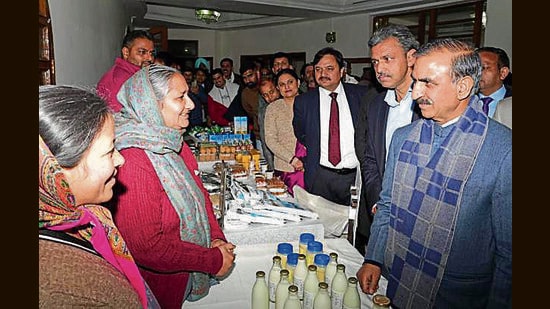
The state government will push for new innovative schemes in the upcoming budget to increase agricultural yield and boost farmer income in the next two years, chief minister (CM) Sukhvinder Singh Sukhu said on Sunday.

The CM was interacting with milk producers of the state at Hotel Peterhoff in Shimla, where he said the government was encouraging agriculture as an industry to make the farmers self-reliant.
Sukhu said there was a direct relationship between agriculture and milk production and it is necessary to go for natural and organic farming in a big way, thereby linking the traditional farming techniques with modern technologies. “We intend to bring revolutionary change in the agriculture sector with special focus on promoting animal husbandry,” he said, adding that an increase of ₹6 in milk purchase price is an indication of our future course of action to strengthen the dairy sector for assuring fixed income to the farmers.
Fundamental changes, he said, were being made in the policies and rules to ensure that money goes directly to the farmers. The government will also consider giving tax concessions to the milk producers, he assured.
Milk quality in Himalayan region was far better and efforts were afoot for its marketing, which will add to the boost farmer income, make agriculture an employment-oriented industry and prevent exploitation.
The ₹500 crore “Him Ganga Yojana” is being tipped as a further boost to the milk-based economy. A milk processing plant with a capacity of 1.5 lakh litres per day will be established at Dhagwar in Kangra district at a cost of ₹226 crore and enhance production up to 3 lakh litres per day. The process of land transfer for setting up the plant has been completed. The unutilised land of the farmers will be used for setting up solar plants to strengthen the rural economy under the second phase of Rajiv Gandhi Self-Employment Startup Scheme.
The CM also held extensive discussions with the farmers in an open dialogue session and assured to incorporate the suggestions received from the farmers and other stakeholders in its policy document.


